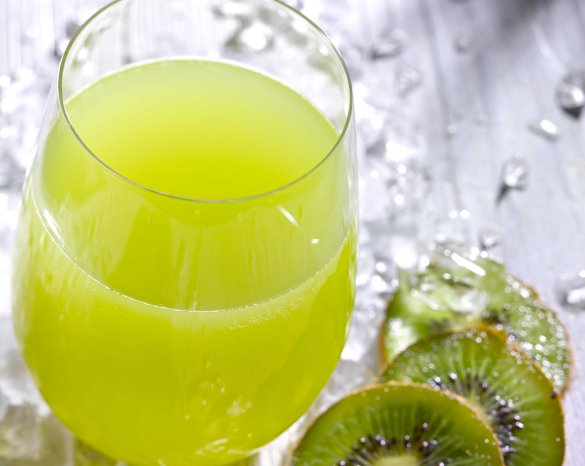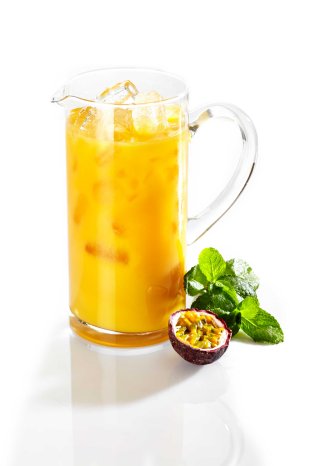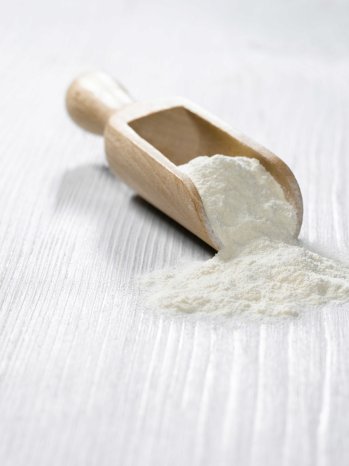As sugar has manifold properties, sugar reduction does not simply work by lowering its content; for this reason we support you with our technical know-how.
The World Health Organisation (WHO) recommends an average daily consumption of at least 2 to 3 litres of fluids and a maximum sugar intake of 25 grams per day. This requirement can be met by table water, but water does not offer anything special in the gustatory sense. The most popular soft drinks have a very high sugar content with an average level of 10 grams per 100 ml. Fruit juices, which are allegedly the healthy option, contain a high level of vitamins, but are also inherently high in carbohydrates. As a result of increasing nutritional awareness on the part of the consumer, more attention is paid to the calories contained in drinks, although, at the same time, people do not want to give up their intake of health-promoting vitamins. Beverage producers are therefore increasingly required to manufacture products that are low in sugar, which fulfil their customers’ discerning demands. In the area of beverages based on fruit juice, this means a reduction in the percentage of fruit and consequently in the level of carbohydrates. The challenge here is to optimise the calorific value and simultaneously produce a full-flavoured and palatable fruit drink, which is comparable to fruit juices that are commercially available. As a result of reducing the fruit content, however, there is an inevitable hange to the mouthfeel of the drink. The viscosity of the drink is reduced and the product becomes more watery. The loss of mouthfeel needs to be counterbalanced by using an ingredient to add texture.
Herbacel AQ Plus Citrus is a highly functional citrus fibre based purely on plants, which is ideally suited for adjusting the mouthfeel or the viscosity in drinks based on fruit juice. As a result of its high water-binding capacity (25 g/g), using just a small quantity has a significant effect on the viscous property of the drink. The citrus fibre, which is free from E-numbers, can thus contribute to an optimisation both in terms of calories and in terms of costs. The drinks produced with citrus fibre have optimal flavour release and a typical fruity character in terms of their mouthfeel and texture. By means of extensive trials, the optimal dosage of Herbacel AQ Plus Citrus for various levels of fruit content in drinks exemplarirly based on concentrated orange juice has been determined in order to achieve the required performance level.
Drinks based on concentrated orange juice
A 100 % orange juice (17.23 % concentrate) was used as a reference. The fruit content was reduced by up to 70 % and the viscosity and mouthfeel were adjusted using Herbacel AQ Plus Citrus. A dosage of merely 0.06 % was sufficient to achieve the reference level. The drink has a full-bodied mouthfeel and a texture typical of fruit. The fruit juice drinks that have been adjusted in terms of viscosity can be optimised using natural flavours and vitamins and with natural sugar substitutes if necessary.
Highly viscous drinks (smoothies, nectars, etc.)
As well as being used in low-viscosity drinks, Herbacel AQ Plus Citrus can also be used to improve the mouthfeel of drinks that are high in viscosity. In a similar way to drinks based on concentrated orange juice, it is possible to reduce the amount of apple or banana pulp and thus also the sugar level in the smoothies by using citrus fibre.
At the same time, a drink is created with a consistency that is pulpy and typical for this type of product. The quantitative relationship between the reduction in the amount of apple purée by adding water and using Herbacel AQ Plus Citrus.
Herbacel AQ Plus Citrus is a citrus fibre which fully meets the demands of both the consumer and the manufacturer. Not only is it Clean Label and entails the positive image of dietary fibre, it also offers technological benefits to optimise your beverages.




